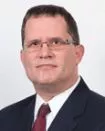Nursing homes participating in Medicare and Medicaid must have all non-exempt staff fully vaccinated against COVID-19 no later than January 4, 2022, under an emergency regulation issued November 4. Exemptions are allowed for staff with certain recognized medical conditions or religious beliefs.
The emergency regulation, issued by the Centers for Medicare & Medicaid Services, complements a separate regulation for large employers, also issued November 4, by the Labor Department's Occupational Safety and Health Administration. The CMS regulation is expected to be published in the Federal Register on November 5.
The CMS vaccination requirement does not apply to assisted living facilities. However, assisted living providers are subject to the OSHA regulation if they have 100 or more employees.
Two deadlines apply for the CMS rule: By December 5, nursing homes and other providers covered by the rule must ensure that all non-exempt staff have received the first dose of a two-dose COVID-19 vaccine (Moderna or Pfizer) or the one-dose vaccine (Johnson & Johnson). By January 4, all non-exempt staff must have completed their vaccinations. Booster doses are not required.
CMS told the McKnight's news service in August that the agency did not expect to punish non-compliance by immediately making those providers ineligible for the Medicare and Medicaid programs. Rather, CMS would use the usual system of progressive enforcement, starting with survey citations and fines.
Unvaccinated staff "pose both a direct and an indirect threat to the very patients that they serve," CMS said in issuing the regulation. The United States has seen 44 million infections, 3 million hospitalizations and 720,000 deaths from COVID-19 as of mid-October, CMS said. It said staff vaccinations will reduce the risk of COVID-19 by 90%, inhibiting the spread to others; reduce the medical removal of staff from the workplace, as required by OSHA; and reduce the inclination patients may have to forgo medical care out of fear of exposure to unvaccinated staff.
Staffing concerns
As providers are fully aware, the regulation comes amid industrywide staffing shortages. Provider magazine reports that nursing homes have lost more than 380,000 employees because of the pandemic, nearly 49% percent of nurses and aides in various settings are at least somewhat likely to leave the profession over the next two years, and 58% of nursing homes have had to limit new admissions because of a lack of employees.
CMS acknowledged concerns about staff leaving jobs rather than getting vaccinated, but it said there is not sufficient evidence that such shortages would harm care more than the shortages caused by COVID quarantines. CMS further said the staffing crisis is driven by multiple factors including longstanding shortages in certain fields, stress and trauma from the COVID emergency, obligations such as child care, new careers, and illnesses and death from COVID-19. CMS also said vaccination requirements already in place in hospitals have not led to widespread resignations, and many staff already comply or have complied with vaccination requirements from schools, employers or state government. Moreover, CMS said all health care workers have a general ethical duty to protect the people they encounter in their work.
The American Health Care Association and National Center for Assisted Living issued a statement November 4 expressing its concern over staffing. "While we support the overall intent of this CMS policy, we are concerned that the execution will exacerbate an already dire workforce crisis in long term care. A hard deadline with no resources for providers or glide path for unvaccinated workers is likely to push too many out the door and ultimately, threaten residents' access to long term care.
"Even a small percentage of staff members leaving their jobs due to this mandate would have a disastrous impact on vulnerable seniors who need around-the-clock care. Across the country, access to long term care is becoming strained as providers have no choice but to limit admissions or even close their doors due to workforce shortages. We hope to continue working with the Administration to make the federal vaccine mandate successful while supporting our residents and caregivers."
Exemptions, surveys
Providers must have a process for staff to request exemption based on certain disabilities, medical conditions or sincerely held religious beliefs, practices or observances.
CMS will issue guidelines and will train surveyors on assessing compliance. Surveyors will review vaccination records, interview staff and review policies and procedures. Providers will have to document the vaccination status of each staff member.
When President Biden first announced the upcoming staff vaccination mandate on August 18, the rule applied only to nursing homes, raising concerns about staff leaving for jobs with other providers that were not covered by the mandate. President Biden expanded the mandate on September 9 to include other providers, such as hospitals, home health agencies and others. CMS says the mandate now applies to 76,000 providers and more than 17 million staff.
The CMS regulation does not have a sunset clause and is not tied to any declaration of emergency. Depending on the course of the pandemic, CMS might make the rule permanent.
The content of this article is intended to provide a general guide to the subject matter. Specialist advice should be sought about your specific circumstances.

